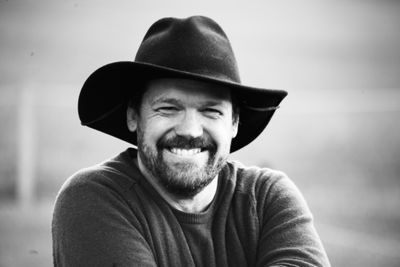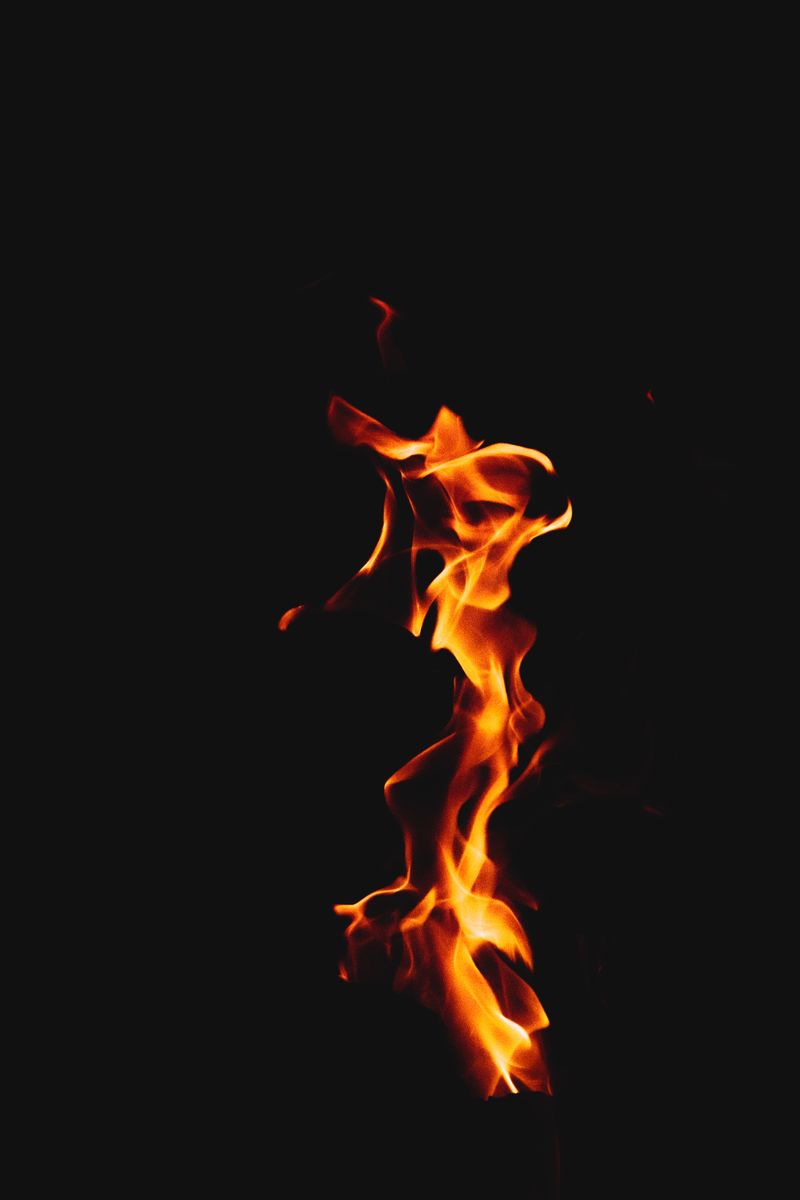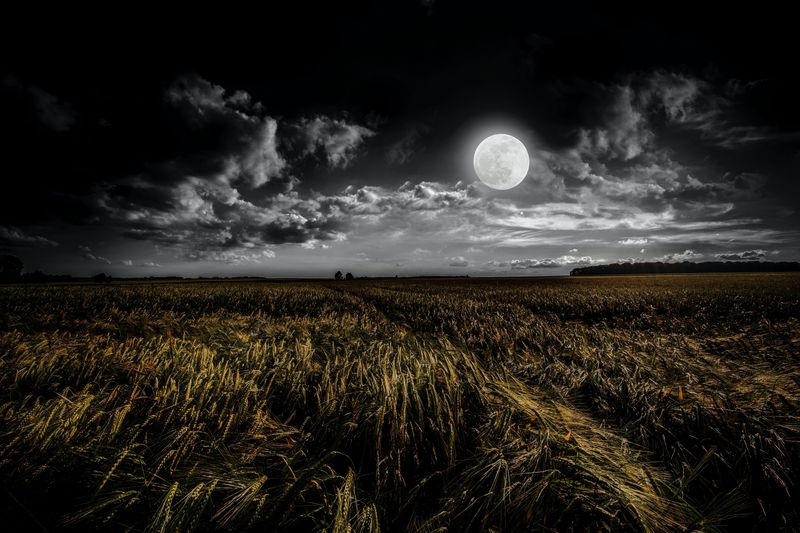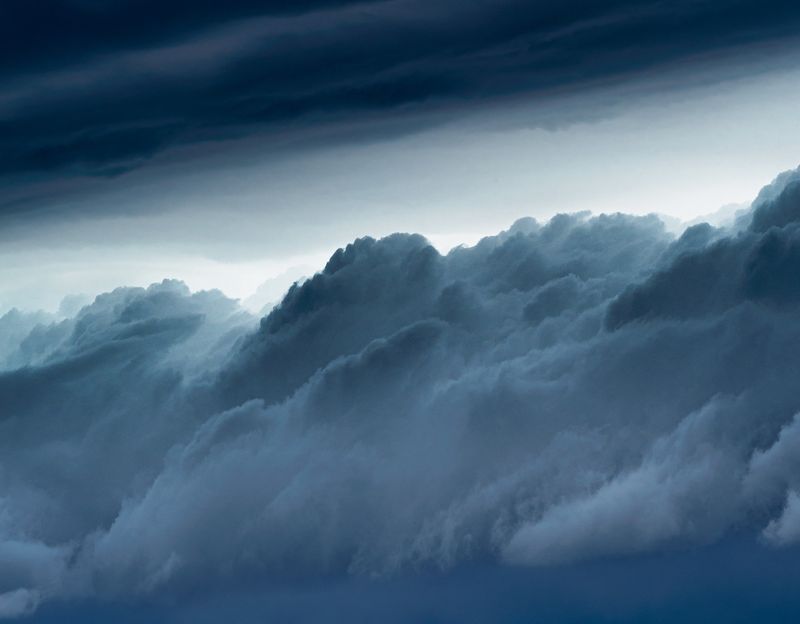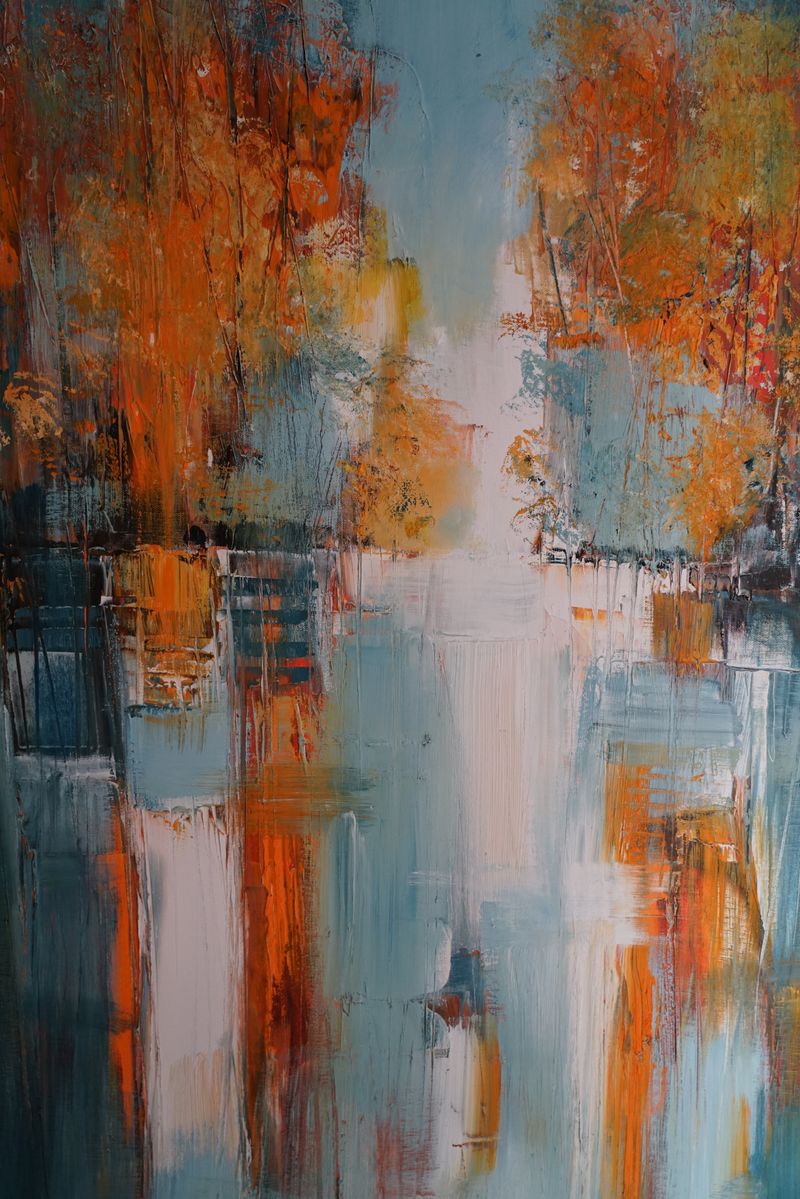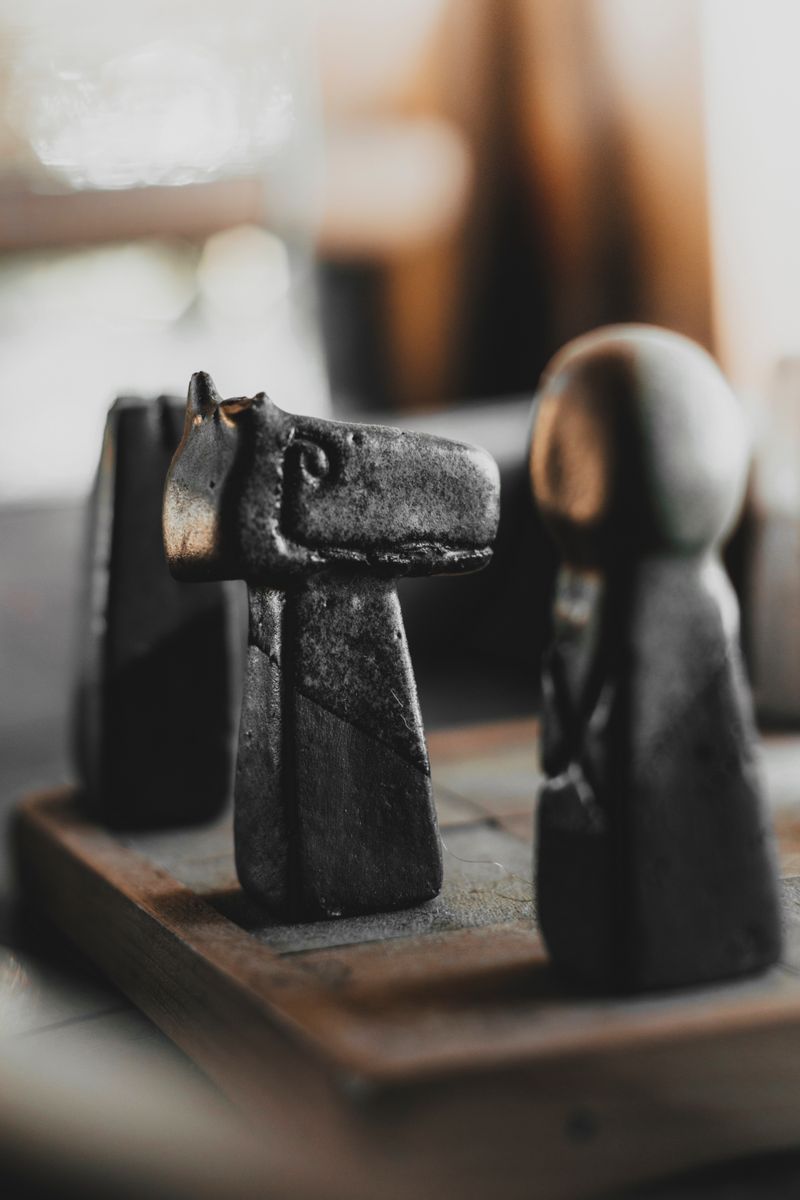It’s mid-winter and perhaps it’s too cold for this. But never mind—I felt the necessity to remove myself from easy comforts and go sit on the ground. Moreover, I needed a campfire.
Sitting as close to it as I can, leaning into the twiggy grass, under the path of smoke, I stare—of course—at the pulsing red glow. A few frogs call from the dam, and lapwings too with their sawtooth cries. A car coming slowly down out of the hills, headlights swinging stiffly across the land.
I am mostly hidden amongst these big trees, up the back of the farm. As long as these bulky clothes keep the back side of me warm, and I can feed the fire, I am content in this tiny fold of the Earth.
What is it we gain from fire? Burning an arrangement of tree branches under a night sky, accessible and vulnerable to breezes and rain and insects: why do we need this?
There are many reasons of course, but tonight I feel it as a desire to sit with the longest lineage we have—our line of ancestors through deep time. We have always done this. And it feels good to remember, by way of hypnotic flame, that however strange we’ve gotten these last few centuries, in my culture at least, we are not really so different.
I shift my buttocks on the cold ground like any other human in deep time. I hold a stick with a casually precise grip and corral embers, lift and drop logs, keeping the burning wood oxygenated like any other cold human, husbanding their own metabolism.
Sitting here like this, I’m reminded that we can still do right by our ancestors. And we can still reach for some way to do right by our descendants, and become, one day—as I’ve heard it said1—good ancestors for them.
What does it take, though, to achieve such a thing? Is it even fair to put such a burden on ourselves?
Of fairness, I don’t know. I know its not wise to personally try to hold the weight of that burden. We’re too small for that. But its un-wiser still to try to un-commit, to believe that there is an exemption available. That’s when the burdens really trickle in and build pressure, like brackish waters in the interstitial tissues of soul.
I’ve learnt over the years, and I think I’ve learnt it childishly slowly, that the greatest lightness and joy is here within the commitment. Strange how accepting an appropriate measure of responsibility eases the heart. And not so strange too.
So then, what about the first question—finding our way into good ancestorship; can it be done? And what does this even mean?
For me this means something like being a living, breathing part of a culture-in-evolution. A culture in good relationship to life, as life really lives. I’ve heard it said that ‘culture is upstream from politics’2. And whether or not economics is upstream from politics too, culture is almost certainly the source of both.
I find the flavour of these sorts of ideas, thinking about what’s upstream from what, both useful and disconnecting in its abstraction. It sits better with my sense of things to think about culture viscerally—a phenomenon as biological as anything else. An entirely natural adaptation that grew out of the intensely social nature of the human species, its burgeoning capacity for symbolic and systemic thought, its deliberate project of passing advances down the generations, and deepening sophistication through time. In sum, a flowing of knowledge, wisdom, nuance and complexity toward its descendants. I can feel-imagine that happening, across camps on the savannah, stone villages on the tundra, clearings in the forest.
Some say that culture arose from this phenomenon in front of me now; that the use of fire, over time, gave us our knowledge-making and sense-making systems. ‘Pre-digestion’ of food by cooking allowed for smaller guts, smaller jawbones, faster metabolisms, more fatty brain tissue, more time in conversation, more need for and greater use of language. Perhaps smoking of food allowed for more pauses in the food-finding mission, more food security, and therefore more consolidation of knowledge by way of language and ritual and story. Cognitive power expanded and childhoods grew longer, brains more neuroplastic and capable of more socio-organised adaptation to biological flows. And onward, toward the cultural-evolution-on-steroids that we know well from the last few thousand years.
Clearly, though, cultural evolution can go in multiple directions. It’s not to be confused with ‘progress’, as if there is a linear path and an ultimate destiny toward which it moves. It can go badly, it can go well, it can go weird, it can stagnate and it can ignite. Probably the only consistency is the movement into greater complexity. But that too is probably cyclical.
I think it’s fair to say that cultural evolution has gone badly in many parts of the world. Particularly for those cultures who have come to dominate the world.
But this isn’t a blame game. It seems that a wide patchwork spiral of violence and trauma, causing more violence and trauma, somehow took hold, to our great sadness, and has resulted in a widely spread, deeply extractive, mechanistic, utilitarian, militaristic, fend-for-yourself, globally dominant culture that has a lot of difficulty seeing the natural patterns that are the truth of the world. It’s a mega-culture that has moved a long way from what people really want to be. In other words, a culture not particularly human.
I’ll state it boldly, as outright opinion: there is nothing much human at all in the damage these cultures have wrought. The suffering of watersheds, rivers, forests and creatures all over the world is not a result of human desire, it’s a result of human cultural evolution gone terribly askew, in which us sapiens are suffering badly too. As an earthly phenomenon, it’s neither natural nor unnatural, just sad. And the wealth we have wrung from it—no real consolation.
So then, if I’m speaking, in this blog, to people like me who are now living deep in the bowels of said culture, what on Earth can we do?
It’s clearly so much larger than ourselves, by a factor of millions. And I think it’s right to feel into the enormity of that and to be deeply skeptical of proffered solutions. There probably aren’t any solutions to this madness and sadness, in the usual meaning of that word. There is only more evolution. And that there, in my feeling of things at least, is the source of our agency in the world. Agency is much less about having a heard voice, or an ‘impact’, as it is an ease and participation with the process of evolution. An alignment of self-hood and human-hood with the continuous unfold.
But that begs the question, doesn’t it—can we really be a part of this evolution?
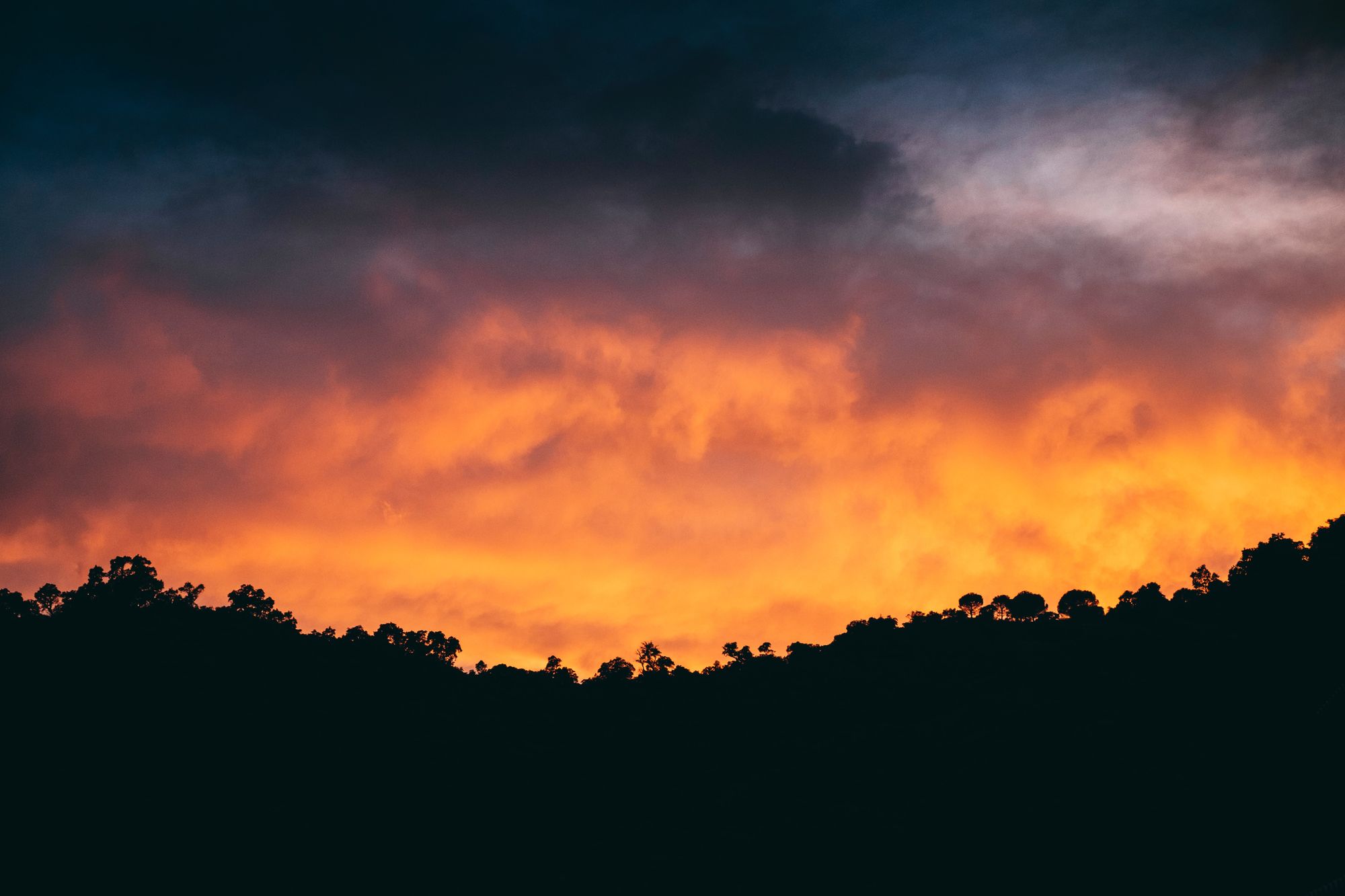
We already are. Evolution never pauses, and it comes about through every organism and every presence on the planet, and beyond. You can’t opt out, actually. You are an influence whether you want to be or not.
You can, though, change the nature of your influence. Are you a part of the extractive, deadening, not-so-human culture, and moving ever deeper into its ways and mores? Or are you finding your way toward its outer edge, and beginning to imagine something better, more beautiful, more you?
Are you paying attention to the possibility in the moments you spend with a child? Are you taking deep care with your love, with the energy delivered by your heartbeats and inhalations? Are you rejecting the expectation that you should hanker for certainty and security? Do you cultivate your own sense of the human?
Are these small things, perhaps, a movement toward becoming a good ancestor?
I believe so. But I do think that if we’re at all in the mindset of asking, how can I be a good ancestor, then we’ll be struggling, probably in vain. It’s the singular ‘I’ in that question that makes it so limited.
This is difficult stuff, given the strength of the system and culture we are firmly positioned within. And the human animal does nothing very much by striking out on its own. So this is absolutely in the realm of the relational.
It’s probably only by leaving behind a sense of personal destiny or agency, getting fully into relationship with others on a similar journey and asking ‘how do we become good ancestors?’, that cultural evolution in a purposeful direction can take hold.
Ironically, I’m sitting here by the fire, in total solitude, thinking these thoughts. But I feel not alone at all, because I know many people who feel a similar way. And there’s nothing like shared purpose—replete of course, with nuance and complexity and difference and uncertainty—to dissolve loneliness.
Solitude and solidarity were never at odds anyhow. Movement between them is surely a necessary rhythm.
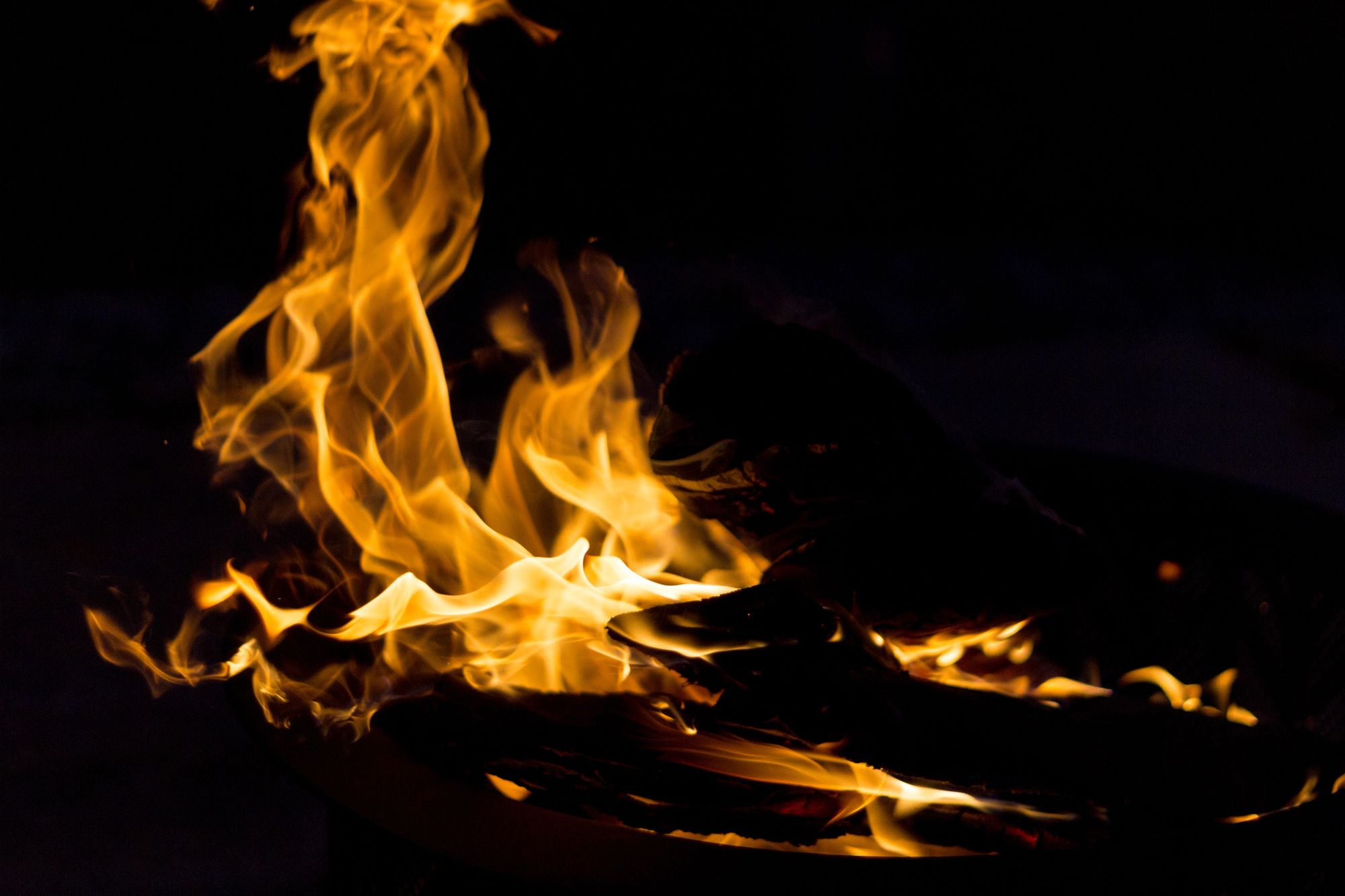
Of course, this is only a beginning. These cultures that are evolving around the world, in response to the felt movement toward collapse, are deepening and gathering in complexity as I sit here by a small nest of dying embers.
And even as I grow stiff and cold, put out this fire and begin making my way home through the trees, they are getting more and more confident about how to restore damaged watersheds and rivers and forests and territories. Which, of course, is at the heart of the necessary work.
But there is no separation here—if we can do it at all, we will heal culture at the same time as we heal land. Nothing less than a culture is required.
And in dedicating ourselves fully to the work of restoration and regeneration, nothing less than a whole, dynamic, properly human culture will evolve.
In which some people will be able—most likely not us, but our descendants—to take proper solace and joy.
1. Joe Brewer, in group discussion, Earth Regenerators network.
2. Daniel Christian Wahl, Doomer Optimism Podcast, and a few other places.
Images 1. Martin Adams / 2. Joris Berthelot / 3. Cris Dinoto
Comments? If you would like to say something about this post, I'd love that. For personal reasons, I don't enable comments on the blog site, but please feel free to write to me—andy@wearehumans.com.au

